Mitchell Hamline School of Law is welcoming six new members of the faculty this year with plans to hire five new tenure/tenure-track faculty to begin in fall 2022. Overall, the moves are part of the school’s goal to hire 10 new tenure/tenure-track faculty in coming years.
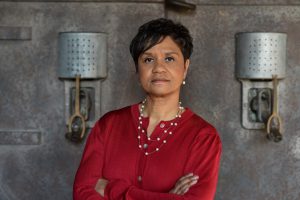
Jill Bryant (submitted photo)
The six new faculty include one professor of law, Jill Bryant, for whom this marks a return to the school. She’s been associate provost and professor of legal studies at Hamline University since 2016, working on matters including educational policy, strategic planning, and curriculum. She assumed the duties of provost last summer.
Before the Mitchell Hamline combination in 2015, Bryant (she/her) was professor and director of Hamline Law’s Business Law Institute. She has also taught as an adjunct at Mitchell Hamline. Bryant has her Bachelor of Science degree from Northwestern University and J.D. from Columbia University School of Law.
Her appointment will help Mitchell Hamline expand its offerings in business law. “I’m excited to be returning to the full-time faculty at Mitchell Hamline,” Bryant said. “The school’s commitment to diversity and inclusion for its students and the profession make it a leader in improving access to the law.”
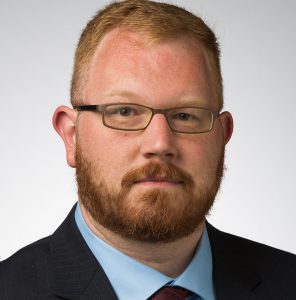
David Cleveland
David Cleveland joins the Legal Writing faculty as Mitchell Hamline’s first Distinguished Professor and Scholar. Cleveland (he/him) previously taught at the University of Denver Sturm College of Law and Valparaiso Law. At Valparaiso, he served in various administrative roles including legal writing director, academic dean, and dean. He started his career teaching legal writing at Nova Southeastern University College of Law. Cleveland also serves on the board of the Association of Legal Writing Directors and received the prestigious Terri LeClercq Courage Award in 2020.
Cleveland’s appointment is the latest of several faculty hirings in recent years designed to make Mitchell Hamline a destination for legal writing as it overhauls its program to better serve students.
“I am honored to be the first person to hold this distinguished visitorship and excited to teach at a cutting-edge and forward-thinking law school that’s delivering an excellent legal education to students nationwide.”
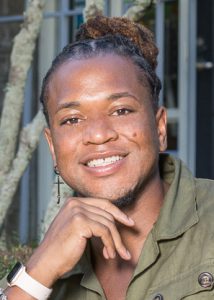
T. Anansi Wilson
Dr. T. Anansi Wilson began as an assistant professor of law at Mitchell Hamline in May. They are currently teaching their first course – a summer seminar called “Race, Law & Sexuality.” In the fall they’ll teach another seminar, “Black Lives Matter: Retracing the BLACK in Black Letter Law.”
“Mitchell Hamline offers a unique opportunity to not only return to the Midwest, which is my home, but more importantly to return to the lands that have historically been the site of national discussion, debate, organizing, and policy regarding the civil, social, and human rights of Black folks,” said Wilson.
Wilson (they/he) hopes to establish a center at Mitchell Hamline that broadly focuses on social justice “but also explicitly engages in multidisciplinary study, community dialogue, and artistic expression regarding the interplay between ‘black letter law’ and Black and BlaQueer life.”
They have a J.D. from Howard University and a doctorate in African and African Diaspora Studies from the University of Texas-Austin.
Visiting Assistant Professor program
Three faculty members are part of the new Visiting Assistant Professor (VAP) program, designed to diversify the legal education profession by recruiting accomplished attorneys into teaching with a two-year appointment.
Each professor in this program will teach legal writing and one additional class while working on scholarship and serving the school and community. At the end of their time at Mitchell Hamline, they will enter the national hiring market for both doctrinal and skills-teaching jobs.
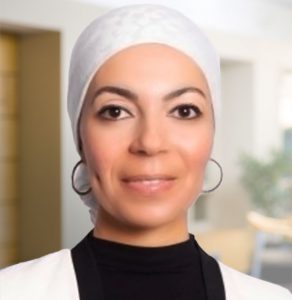
Engy Abdelkader
Engy Abdelkader is an accomplished human rights attorney who has been a fellow at the Public Religion Research Institute and German Marshall Fund of the United States. Abdelkader (she/her) also has taught at Rutgers University and Rutgers Law.
Her teaching and research explore religion, race, and gender at the intersection of law, politics, and society.
“At Mitchell Hamline, I hope to build upon my teaching experiences and prior research projects centered on religion, race, and gender at the intersection of law, politics, and society domestically and internationally,” she noted.
Abdelkader has a J.D. from Rutgers University School of Law and a Master of Law from the University of Pennsylvania Law School, and she chairs the Rights of Immigrants Committee with the American Bar Association Section of Civil Rights and Social Justice.

Maikieta Brantley
Maikieta Brantley joins Mitchell Hamline from the University of Denver Sturm College of Law, where she was a fellow in the Lawyering Process Program. She previously was in private practice in Missouri and Illinois at the firm Lewis Rice, also serving as a mentor and mock trial coach.
A native St. Louisan, Brantley (she/her) taught at the University of Missouri after earning her master’s degree and before attending the university’s law school. Her pro bono work has included representing clients in landlord/tenant matters; she’s also focused on labor and employment issues.
“I’m most looking forward to teaching in the blended-learning program [at Mitchell Hamline],” she said. “I love the integration of learning and technology and that students can be from all over the world. I want my students to be prepared for the ‘real world.’”
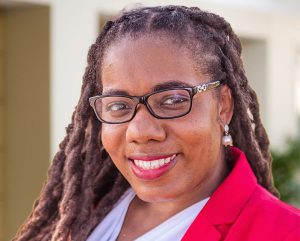
DeShayla Strachan
DeShayla Strachan (she/her) was encouraged to attend law school by an attorney she met while working as a journalist in Florida.
She has served in attorney positions at the Florida Council Against Sexual Violence, the Florida Department of Children and Families, and as an assistant state attorney in Orlando. She also recently was an adjunct instructor at Mercer University’s law school.
Strachan has a B.S. degree from the University of North Florida and her J.D. from Barry University School of Law.
“Mitchell Hamline was first on my list [of places to apply] because it gives nontraditional students a chance to get a legal education,” she said. “I’m looking forward to the mentorship from more experienced professors and hope to learn more about pedagogy and legal scholarship.”
Other faculty updates
Two members of the Legal Writing faculty received promotions in June from the board of trustees. Wendy Shea was named professor of law, and Melissa Shultz was placed on the tenure track with the title of associate professor of law. Shea teaches legal writing and contracts. Shultz teaches legal writing and professional responsibility.
Members of the Academic Excellence department have received faculty appointments: Nicole Coon, Maggie Eilertson, Kari Milligan, Garrett Mulrooney, and Alex Wainberg were promoted to associate teaching faculty; Laura Brooks was promoted to assistant teaching faculty.
Greg Duhl, senior academic technology officer and Rolf and Nancy Engh Distinguished Professor, will lead a new Information Technology Services department that includes network and systems, academic technology and support, and instructional design.
